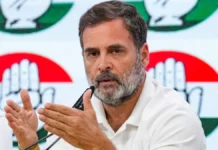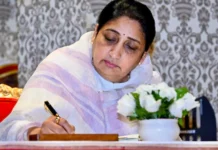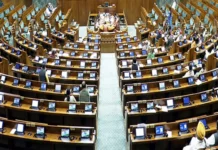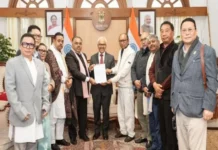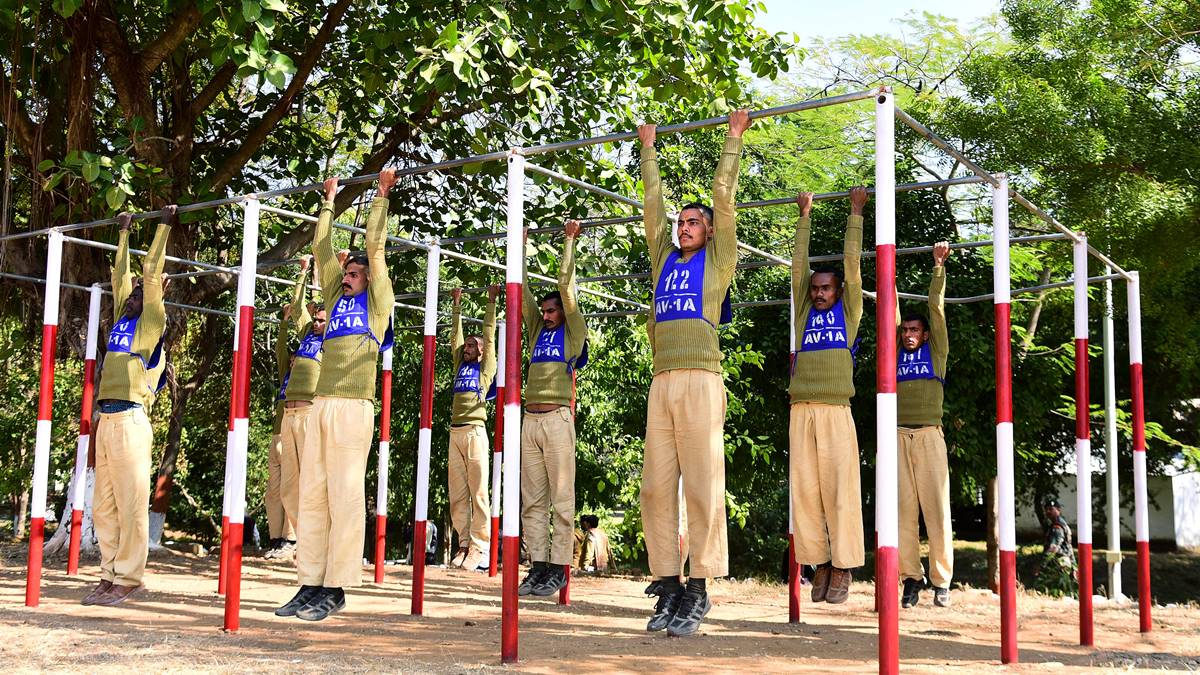
NEW DELHI: The Delhi High Court on Monday dismissed a batch of petitions challenging the Agnipath scheme and seeking resumption and enrolment as per the previous recruitment scheme in Indian defence services.
“The scheme is made in the national interest and to ensure that armed forces are better equipped,” said a Bench headed by the Chief Justice of Delhi while passing the judgement. A Division bench headed by Chief Justice Satish Chandra Sharma also comprising Justice Subramonium Prasad on Monday upheld the central government’s Agnipath Scheme and said that the court finds no reason to interfere in the said scheme.
On December 15, 2022, the bench kept the Judgement reserved after hearing arguments on behalf of different petitioners and the central government.
During the hearing, Additional Solicitor General (ASG) Aishwarya Bhati appeared for the central government and submitted before the court that more than 10 lakh aspirants have been given the benefit of age relaxation. The Agnipath scheme is a major paradigm shift in the recruitment process of defence personnel. We cannot put everything on the affidavit but we can say that we acted bona fide in the matter. The central government has informed the Delhi High Court that no prejudice has been caused to any of the candidates who had participated in the earlier recruitment process.
It was further informed by the central government that recruitment in the ‘armed forces’ stands on a completely different footing viz-a-viz employment in public offices, as it constitutes an essential sovereign function, which directly relates to the maintenance of national security.
Therefore, the central government in exercise of its sovereign power and to effectively and efficiently safeguard the security and integrity of the country is duly empowered to change the policy providing the mode and methods/service conditions of the persons who are to be employed in the armed forces, stated the affidavit.
The decision of the central government to make recruitment through a new ‘Agnipath Scheme’, therefore, constitutes a policy decision taken by the government for national security reasons, it was further stated Advocate Prashant Bhushan appeared for one of the petitioners challenging the scheme and argued that the decision made by the government is arbitrary and unfair. There is no real reason behind the decision.
He also argued that the candidates whose select list was out were made to keep on waiting for two and half years.
ASG Bhati responded to the contention and said, “There is a difference between the Navy and other defence forces. The Navy cannot afford to put on hold the process as it will impact its operational capabilities and war readiness. They had modified the recruitment plan.”
“Selection does not give a right to an appointment. The process got delayed because of Covid,” ASG argued. The Chief Justice asked the ASG, “People who had cleared the examination were waiting. Why did you not complete the process? How you will answer this?”
ASG submitted that in June 2021, the decision was taken at the highest level. It was clear that the Agnipath scheme is a paradigm shift. After June 2021, we want to bring a big paradigm shift in the manner in which recruitment takes place.
It was clarified by the central government that the Agniveer is a separate cadre and ranks lower than sepoy. During the argument advocate, Ankur Chibber who appeared for some of the petitioners argued that there can not of disparity in salary. The entry-level in force is sepoy. An Agniveer would get less salary than a sepoy. There should be an equal salary for equal work.
Another point he raised was that an Agniveer would have to join afresh if he is selected after a period of four years of service. His past four years of experience would not be counted. It will affect his seniority and other benefits. Advocate Kumud Lata, the counsel for Harsh Jay Singh argued that the tenure of service is four years. Agniveer would not be entitled to a gratuity.
She also raised a point that there is no provision for pension for Agniveers. She also referred to other countries including USA, Russia, and Israel during her arguments.
Justice Prasad said, “It is a new scheme which gives an option to a young man to get training. After that, he can go and do any job. Moreover, it is not compulsory.”
Another advocate, who has served in the army for 21 years, submitted that the period of training is short. The tenure of service is also short. What quality the force will get if training is too short.
He submitted that there is physical and arms training which requires at least one year. He also submitted that the sense of belonging develops over a period of time. The soldiers give respect and get respect over the period of time they spend in the force.
He submitted that the government did not take feedback from the unit level which operates at the ground. The government should reconsider it. Earlier, the bench refused to put a stay on the Agnipath Scheme and said. “If petitioners get success in the case, they will get it.” “We will not pass any stay or interim order and will hear the case finally,” added the bench.
On July 19, 2022, the Supreme Court transferred various pleas related to Agnipath Scheme to Delhi High Court. The Supreme Court also clarified that as regards to other similar petitions challenging Agnipath Scheme pending in other various High Courts, the concerned HCs should either give an option to the petitioners to either have their petitions transferred to the Delhi HC or to keep their petitions pending with liberty to petitioners to intervene in Delhi High Court.
The top court had also requested the Delhi HC to take up the matter and dispose of it expeditiously.
“High Courts of Delhi, Kerala, Punjab and Haryana, Patna and Uttarakhand are hearing matters connected to these schemes,” noted SC.
The SC directions come after hearing advocates Kumud Lata Das and M L Sharma for petitioners and SG Tushar Mehta for Respondents. A petition challenging the scheme stated that the announcement of the scheme has caused nationwide protests in Bihar, Uttar Pradesh, Telangana, Haryana, Uttarakhand, West Bengal and various other states due to the short-term duration of the scheme in the Indian Army for four years coupled with future uncertainties of the trained ‘Agniveers’.
A PIL in this regard also sought quashing of the Centre’s notification for the Agnipath scheme saying the scheme is “illegal and unconstitutional”.
The Union Cabinet on June 14, 2022, approved a recruitment scheme for Indian youth to serve in the three services of the Armed Forces called Agnipath and the youth selected under this scheme will be known as Agniveers. Agnipath allows patriotic and motivated youth to serve in the Armed Forces for a period of four years. The Agnipath Scheme has been designed to enable a youthful profile of the Armed Forces. (ANI)
Also Read: Rajnath approves ‘Agnipath’ scheme aiming to grant opportunity to youth

